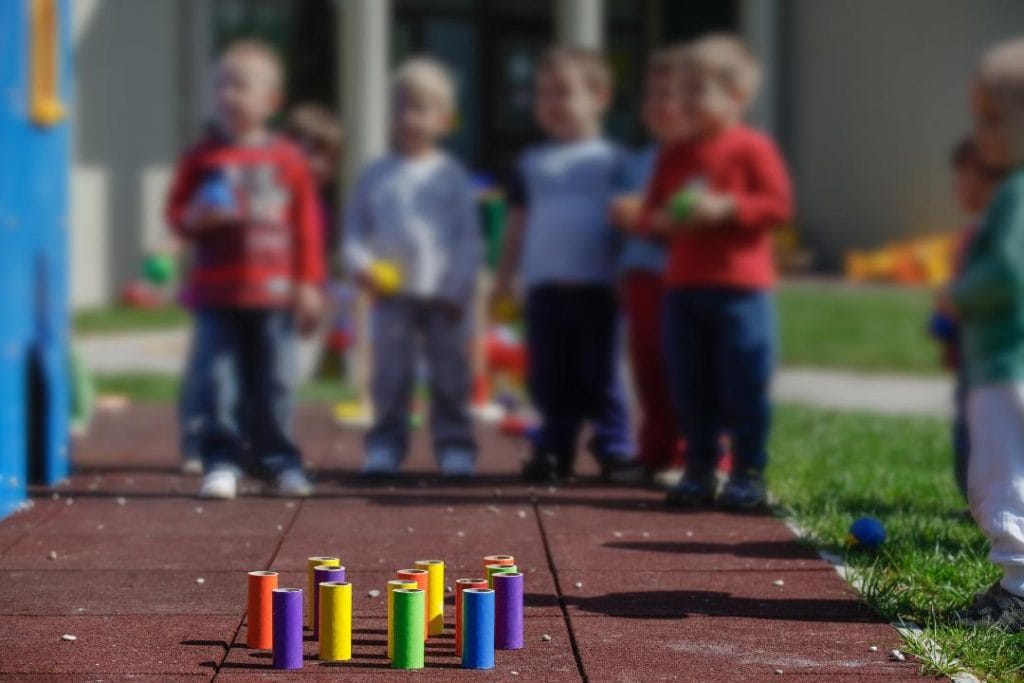There are many benefits to the Montessori method and it is very effective for some children. Read here for more information on the Montessori method and 10 benefits that it offers students.

Education has never been more important than it is today. If you involve yourself in a child’s upbringing, you’ll face immense pressure to provide children with the best education possible.
It is widely accepted that a child’s education has the potential to impact their lives long after their school years have passed.
The most recent research stresses the importance of a high-quality education that begins in early childhood. These are the years that a child is most likely to absorb information naturally.
Benefits of early childhood education range from higher earnings to a larger return on the provider’s investment. Both of these benefits benefit society at large. But, how can you be sure that you are offering your child the best possible educational opportunities?
Read on to find out how the benefits of Montessori can help every child’s development and prepare them for future success!
What You Should Know About the Montessori Philosophy
Many years ago, a young woman named Maria Montessori was studying to become a doctor when she came upon a crucial discovery in the world of education. Her findings would not only change the trajectory of her own life but would prove to change the lives of countless students, including hers. Over the years, many others would follow.
Montessori developed her philosophy based on her scientific observations and experiments.
These observations involved the ways that young children learn. Her first students were a group of inner-city castaways. They were expected to show independence but had never received an adequate education to enable them to reach their potential in any area.
It was an admirable challenge, but one that few would have considered. Montessori accepted the task and would go on to prove many theories that are as effective today as they were when she opened her first classroom.
Montessori’s method of teaching gained notoriety due to the practical and progressive instruction in her school.
Although her first school opened in 1907, her contributions to education continue to be relevant in the lives of students today.
Here are 10 benefits of Montessori that you won’t want to miss.
1. Montessori Values Children as Unique Individuals
Every child is different. Although this is a phrase that is often repeated, rarely do we find educational programs that support this belief. The Montessori philosophy honors the unique learning styles and interests among students.
The Montessori Method recognizes that children will develop skills and reach academic goals at their own pace. It encourages this growth by using Montessori toys.
Each child’s individuality is not only tolerated in the Montessori classroom, but it is celebrated.
2. Children Direct Their Own Learning
In the Montessori classroom, children take an active role in their education.
Children have greater liberties in their daily work. In these classrooms, there are shelves that display a variety of learning activities for the children to choose from. Children move between subjects and areas during a typical morning or afternoon work cycle.
The teacher’s role is to guide the children to make responsible, appropriate choices that will prepare and challenge each student.
Children gain a greater understanding of subjects by working at their own pace.
Because the children have freedom in what they learn, they are often more excited and interested in their lessons.
3. Children Develop a Love of Learning
When children are able to choose subjects and activities that they enjoy, they look forward to learning. School is rarely viewed as a chore because the students are spending time learning about the things that interest them. The only thing stopping a child from learning is his or her imagination.
Classroom dynamics and Montessori’s philosophy encourage children to develop a love of learning. This often occurs in early childhood and follows the child as they continue advancing to higher levels of learning.
Children who enjoy learning have a natural thirst for knowledge. This drives them to go above and beyond requirements in their educational endeavors. A love of learning is one of the most important gifts that we can give to our children.
4. Students Learn to Think Outside of the Box
The Montessori classroom encourages the student’s natural curiosity. Children learn to question the world around them and to search for the answers to their questions.
Developing early critical thinking skills is an asset. This skill benefits the child throughout their life and educational career.
5. Children Have Opportunities to Grow Socially
In addition to choosing their classwork, students are also allowed to interact with one another.
The school permits movement and conversation among the children. This gives children more opportunities to grow social skills and develop relationships with peers.
Students may choose to work together in pairs or small groups during class time. This helps the students to learn how to work together to solve problems and encourages teamwork. It also helps children develop manners and relational skills.
6. Improved Diversity
The Montessori Method originated in Italy, but it has now spread across the globe. Today, there are more than 22,000 Montessori schools in at least 110 countries worldwide.
The Montessori philosophy celebrates the unique traits and practices of many different cultures.
Children learn that we are all part of the cosmic universe. The idea of unity and oneness is important to the philosophy and values of Montessori education.
7. Students Learn Peace Education and Conflict Resolution
One of the key benefits of Montessori is their inclusion of peace education. Children learn to develop peaceful practices and to promote peace with others. They learn that they should care for themselves, one another, and their environment.
There is often a symbol of peace for children to use when they encounter conflict in the classroom. This extends to life outside the school as well. The symbol could be a peace rose, peace rock, or another object. The teacher chooses this symbol to represent a desire for peace.
When there is conflict among the pupils, teachers guide them through steps of conflict resolution. The students must consider how their words and actions might affect another person.
Teachers often incorporate identifying feelings as part of social lessons with their students.
8. Children Learn Basic Living Skills
Many of today’s students are not given the opportunity to develop basic living skills. The Montessori philosophy emphasizes applicable skills for daily life. Even in early childhood classrooms, children learn how to clean, prepare snacks and simple meals, and basic self-care.
In Montessori classrooms, you’ll find child-sized brooms, mops, dustpans, utensils, and other materials. These items help students learn these necessary lessons.
Students are also given the opportunity to explore the outdoors and learn how to care for the earth.
9. Montessori Offers A Hands-On Approach to Education
One of the benefits of Montessori education is that it provides children with a wide-range of hands-on materials. These materials offer students tangible reinforcement for broad concepts.
Mathematical equations and phonetics become easier to learn.
Since all children do not learn the same way, it’s important that children are able to connect concepts with physical hands-on experiences.
The Montessori materials give children a chance to learn through movement. The materials encourage students to use all five senses to learn and grasp new concepts.
10. Montessori Classrooms Encourage Students to Develop Character
In addition to lessons relating to science, math, and reading, children develop character. This is one of the benefits of Montessori education that stays with the child long after they leave the classroom.
Students learn lessons in self-control, self-correction, and respect for others and their environment. There are lessons on how to practice grace and courtesy in a variety of real-life situations. This enables them to be better prepared for all kinds of circumstances that they encounter in childhood, and as they grow into adulthood.
They are taught the importance of caring for their classroom and caring for the materials. They are given opportunities to make positive contributions to their environment and their communities.
Many parents notice that their children begin applying these lessons at home and other places that they go. Often, children given the right tools are capable of assuming leadership roles with their peers and at home.
Activities To Do With Your Child at Home to Promote the Montessori Method
You can teach your child many of the same principles that they learn in Montessori school without ever leaving home.
Want to find out creative ways to teach your child valuable life lessons? Do you want to promote benefits of Montessori at home?
Check out our blog for great ideas on how your family can learn important lessons while spending time together!
